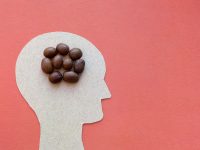Do you find you drink four or five cups of coffee a day? It doesn’t matter how long or deep your previous night’s sleep was?
You aren’t alone. It may not actually be your need to stay alert that makes you guzzle down the brown magic: researchers are saying that it all comes down to our genes.
In a study that was a joint effort between researchers at the University of Trieste in Italy and at the University of Edinburgh in Scotland, geneticists are saying they have pinpointed a gene that makes it more difficult for a person to process caffeine.
The study followed 1,200 people who lived in Italy and tracked their coffee-drinking habits.
Researchers then repeated the study in a group of 1,731 individuals from the Netherlands, to see if their result were similar- and they were.
What did they find, exactly? The culprit on stage is something called ‘genetic variant PDSS2’.
In the study, those who were found to have this variant drank about 1 fewer cups of coffee each day, when compared with those who didn’t have the genetic marker.
Scientists found that individuals with PDSS2 have a harder time breaking down caffeine in their body. Consequently, the effects of drinking a single mug of coffee can hang around in their system for a longer period of time, making these individuals less needy for a second, third or fourth jolt of java each day.
The findings are part of a growing body of evidence that indicates many of our habits may be more strongly controlled by our genes than we may think.
The geneticliteracyproject.org points out that alcohol addiction has long been known to have a genetic component. Those who have just one parent who shows signs of alcoholism have about a 25% risk of developing the same problem.
And in terms of undergoing successful treatment for cocaine addiction, scientists from Columbia University Medical Center found that individuals with a certain genetic make-up that causes a greater dopamine release in their brain, and more dopamine receptors, were more likely to successfully complete an addiction treatment program and to stay drug-free later on, than those with a different genetic constitution.
Even our sleep habits seem to be connected with our genes. Those who have a ‘faster ticking internal clock’, something connected to our genes, may be “morning people” and those who tick a bit more slowly, more prone to activity in later in the day.
Narcolepsy, sleep apnea, and other sleep disorders have all also been tagged with a genetic link.
So, does having a need for all that extra coffee make drinking a lot of it a bad idea?
The debate over the benefits and drawbacks of drinking coffee continues, but a few cups a day can’t be all that bad.
And there’s always personal choice. Still need a fall-back? Citing your biology could make for an interesting conversation the next time someone questions your need for that extra-tall venti latte.
Photo Credit: Pixel-Shot/Shutterstock











